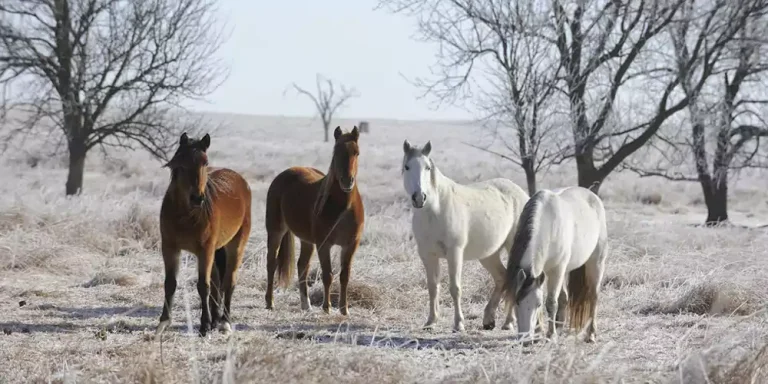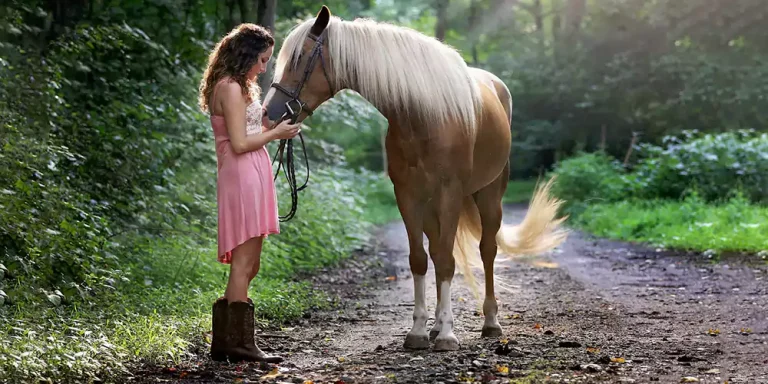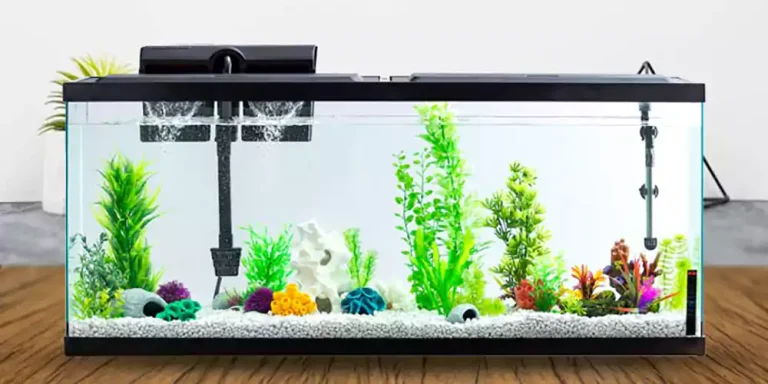Buying a Horse Guide

We understand that buying a horse is a significant financial and emotional investment. Making the right decision and choosing a horse that suits your needs and abilities is essential. Horses are domesticated animals used for transportation and work for centuries.
They are loved by many people and also make great pets. Horses are the world’s third most popular pet animal, after cats and dogs. Horses can live up to 30 years, but some breeds can live into their 40s or 50s. Horses have an average lifespan of 25 years in captivity. However, there is a wide range of 14-34 years among various breeds.
Sarah here; if you are a horse lover, you already know my skill on behalf of Pet Doubts. I’m a horse trainer like my dad; it is in my DNA 🙂 In this article, I will provide you with a comprehensive checklist to follow when buying a horse, so you can be confident that you are making an informed decision.
Introduction
Horses were first domesticated around 4000 BC in the Eurasian steppes. Nomadic tribes in the region bred horses for both transportation and as a source of food. However, many first-time horse owners make the mistake of selecting a dream horse that may not suit them. This often leads to disappointment and abandonment of these majestic creatures, which is a shame.
We believe new horse owners deserve the best support to appreciate horses as much as we truly do. That’s why we’ve put together this guide to help you purchase your first dream horse. Like buying a dream car, it takes a lot of research, experience, and intelligent buying strategies to make a purchase you’ll be happy with.
Unfortunately, like some used car salesmen, some horse dealers can be seen as shady characters who downplay flaws and exaggerate features.
Before you buying a horse
We all love horses, but let’s face it – owning one is a considerable commitment of both time and money. It’s not for the faint of heart or light of wallet! Before leaping into horse ownership, there are a few steps you can take to make sure it’s the right decision for you.
Firstly, if you don’t have an instructor, we strongly recommend finding a trusted friend knowledgeable about horses and whose horse behavior you admire. Seek their advice and guidance.
Secondly, enroll in regular riding lessons with a reputable coach or instructor, ideally at least once weekly. This will give you a better understanding of what it takes to care for and ride a horse and help you assess whether you’re genuinely passionate about it.
Thirdly, consider a full or partial lease of your dream horse for at least six months. Leasing is a great option where you pay a fee or a portion of the horse’s expenses in exchange for riding time on the horse.
In a whole lease, you take over all costs and care responsibilities, while in a partial lease, the owner remains primarily responsible. Your coach or instructor may be able to recommend a leasing situation for you, as many have horses available for lease in their stables.
If leasing a horse doesn’t give you enough “horse time,” it may be time to consider buying one. However, keep in mind that this is a huge responsibility – similar to going from owning a dog to having a child. Take the time to make an informed decision, and remember that horse ownership requires a significant investment of time and money.
Budgets
I often get asked by first-time horse buyers how much they should spend on their new equine companion. The answer depends on what your goals are with your horse. If you want to have fun and maybe compete at a local level, you should be able to find a suitable horse for $5,000 or less (although this may vary depending on the horse market in your area).
However, if you have more competitive severe aspirations, speaking with your instructor about what you should expect to spend on a quality performance horse is best.
It’s important to remember that your first horse can be a “starter horse” that will help you learn the basics of horsemanship. Even if you eventually want to compete at a national or international level, your first horse doesn’t have to be the one that takes you to the top.
It’s also important to remember that the initial cost of the horse is only a tiny part of the ongoing expenses you can expect to incur. Here are some things to consider when budgeting for your horse each year.
Your Experience Level
It’s essential to be honest with yourself about your horse riding skills when considering training a mustang. Even if you’ve taken lessons for years, that alone may not qualify you to teach such a challenging breed.
For most people, starting with an older and more experienced horse that’s calm, forgiving, and has already been through a lot is recommended. This type of horse is often called “dead-broke” because they’ve seen it all and have a calm nature.
Choosing a horse with this experience and personality will make the experience more enjoyable and safer for you as the rider and help you build your confidence and skillset. So, take your time, and don’t rush into training a mustang until you feel confident in your abilities.
Horse Age
When buying a horse, looking beyond their age and considering their experience level and overall health is essential. While age can be a useful starting point, it’s not the only factor to consider.
Choosing a horse at least 7 to 10 years old is generally recommended for a beginner rider. This age range gives the horse enough experience and training to handle a less experienced rider. However, if you want to grow and develop your skills alongside your horse, you may not want a horse older than 20.
That said, there are many exceptions to this general rule. Some horses are healthy and experienced well beyond their early twenties, while others may not be suitable for riding even in their younger years. Working with a knowledgeable trainer or veterinarian is essential to assess a horse’s overall health and suitability for your riding level and goals.
Remember, age is just a number, and finding a good horse for you and your needs matters. So take your time, research, and work with a trusted professional to find the right horse.
Breed of Horse
Getting caught up in the excitement of owning a specific breed is easy. However, it’s important to remember that a horse’s temperament is far more critical than its breed. Don’t let your desire for a specific breed blind you to other options that may better fit you.
It’s worth keeping an open mind when looking at horses. You may have heard negative comments about certain breeds, but it’s important to remember that every horse is an individual with its personality. You might find that a breed you were initially unsure about turns out to be the perfect match for you.
When considering a horse, looking out for any temperament issues or lack of training is essential. While many thoroughbreds are well-trained and easy to ride, it’s not recommended that someone buy a thoroughbred fresh off the racetrack as their first horse. These horses often lack basic training and will require much work to restart.
Similarly, Arabian horses are a fantastic breed that can excel in many disciplines. However, they tend to be more sensitive and reactive than other breeds. When looking at these horses, take the time to observe their temperament and decide if they would be a good match for you.
Remember, the most important thing when choosing a horse is finding a temperament that matches your own. Take the time to get to know any potential horses and make an informed decision.
Equipment for Horse
Before bringing your new horse home, there are a few essential things you’ll need to prepare. First and foremost, you’ll need maintenance equipment such as a manure fork, water buckets, feed troughs, an emergency kit, and a grooming kit. These tools will help you keep your horse happy and healthy.
If you plan on riding your horse, you’ll also need tacks such as a bridle, a saddle, a halter, a saddle pad, and a girth. Investing in quality tack is essential to ensure your and your horse’s safety and comfort. You can often find second-hand tack at a more affordable price, but purchase a new helmet for protection.
Thinking about your professional network before bringing your new horse home is also essential. You’ll need a vet, farrier, and hay/feed supplier lined up. It’s a good idea to connect with a vet before beginning your search for a horse, as you’ll want a complete vet check before making a purchase. Depending on the condition of your horse’s feet, you may need to schedule a farrier appointment immediately.
These preparations ensure you and your horse are comfortable and healthy in your new living arrangement. While the upfront costs of equipment and professional services can add up, they are crucial investments in your horse’s well-being. With proper preparation, you’ll be well on your way to enjoying your new horse companion!
Boarding a Horse
The cost of boarding a horse can vary greatly depending on the level of care provided. The entire board typically includes feeding and stall cleaning, while the self-care board only provides a stall for the horse, and the owner is responsible for all the feeding and bedding. The local market heavily influences boarding rates in your area.
If possible, it’s best to choose a boarding facility that is relatively close to your home. This will make it easier for you to regularly visit and care for your horse without becoming a burden.
FAQs on Buying a Horse Guide
Here I answer a few FAQs on Buying a horse.
In this article, I cover everything about buying a horse, but if I miss anything, ask me in the comment box. Mr. Sam wrote an article about taking care of dogs in the summer.


